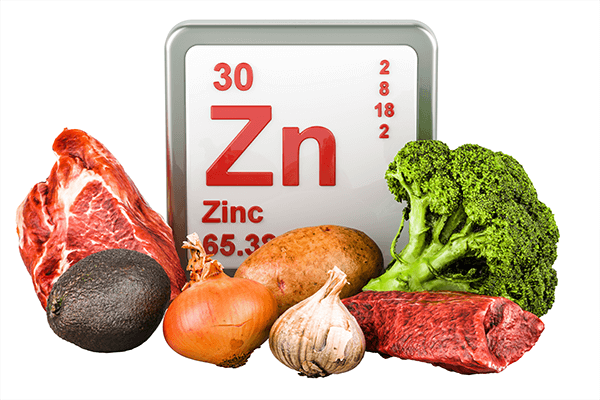- +033 2572 7171
- info@dhanvantary.com

4.5 Rating | 4500 Review

4.5 Rating | 4500 Review
Zinc is recognized as an essential mineral necessary for the body's proper functioning. It is crucial for maintaining overall health and is present in every cell, including bones, kidneys, red blood cells (RBC), white blood cells (WBC), liver, and pancreas. Zinc is instrumental in the operation of over 300 hormones and various enzymes within the body.

Additionally, it is a key component of significant antioxidants, specifically copper/zinc superoxide, which assist in neutralizing free radicals and promoting longevity. Therefore, zinc is vital for the comprehensive health of the body.
The most effective sources of zinc include seafood, animal meats, and fish. Other notable sources are pumpkin seeds, garlic, sesame seeds, lentils, broccoli, tomatoes, whole grains, cereals, bran, and wheat germ. Dairy products such as milk, yogurt, and various cheeses (including Swiss, cheddar, Gouda, brie, and mozzarella) also provide substantial amounts of zinc.
An insufficient level of zinc in the body can lead to various health complications. Zinc deficiency is associated with conditions such as anemia, decreased appetite, and diarrhea, and hair loss, nerve dysfunction, chronic fatigue, impaired memory, delayed wound healing, and stunted growth.
Additionally, zinc deficiency can result in reproductive issues for both males and females. In females, it may cause irregular menstrual cycles, hormonal imbalances, and improper maturation or release of eggs from the ovaries. In males, a lack of zinc can lead to reduced sperm quality, characterized by low sperm count, poor motility, and prostate enlargement.
Excessive consumption of zinc can also lead to health problems, including loss of appetite, vomiting, nausea, headaches, abdominal pain, and diarrhea.
